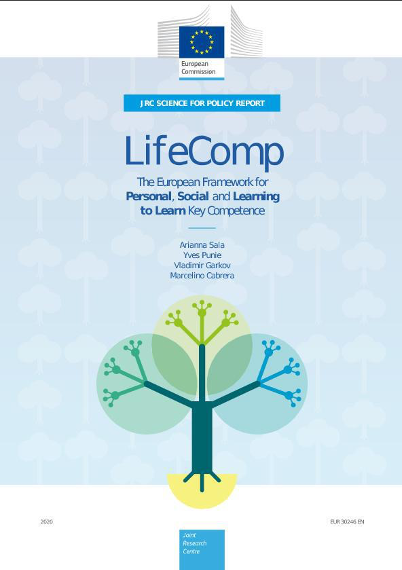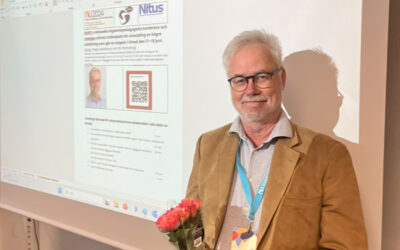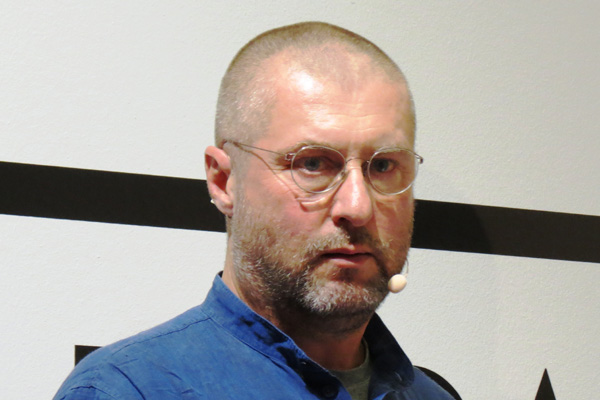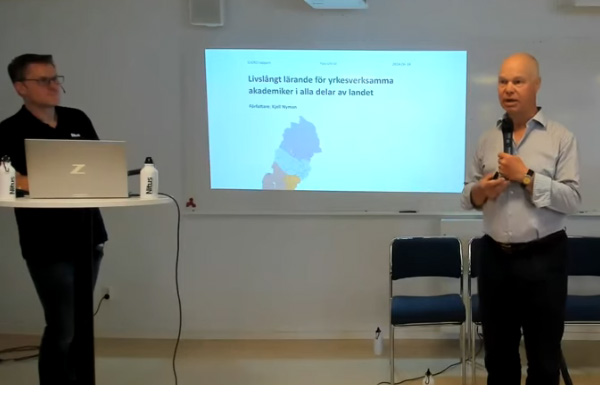En ny Framework från Joint Research Cent4r (Europeiska Kommissionen) om LifeComp Referensram
Personal, Social and Learning to Learn” was set as a key competence in 2018 by the Council Recommendation on Key Competences for Lifelong Learning. The LifeComp framework regards “Personal, Social and Learning to Learn” as a set of competences applying to all spheres of life that can be acquired through formal informal and non-formal education, and can help citizens to thrive in the 21st Century. These competences have been established following a thorough literature research and several consultations with experts and stakeholders. LifeComp has nine competences with three descriptors each. The framework is conceptual and non-prescriptive. LifeComp can be used as a basis for the development of curricula and learning activities fostering personal, and social development, and learning to learn. The description of the competences can help in exploring its implementation and be contemplated as the embryo of a continuous discussion with teachers and educational policymakers.


Läs rapporten här
LifeComp: The European Framework for Personal, Social and Learning to Learn Key Competence
Läs också Bloginlägg från SVERDs V ordförande Ebba Ossiannilsson på I4Quality.se
Source: Sala, A., Punie, Y., Garkov, V. and Cabrera Giraldez, M., LifeComp: The European Framework for Personal, Social and Learning to Learn Key Competence, EUR 30246 EN, Publications Office of the European Union, Luxembourg, 2020, ISBN 978-92-76-19418-7 (online),978-92-76-19417-0 (print), doi:10.2760/302967 (online),10.2760/922681 (print), JRC120911
Today’s world is interconnected. And it’s changing rapidly. We all need to change and constantly adapt.
Adaptation requires us to develop new skills, new know-how, new competences.
We need to develop these competences throughout our entire life.
In May 2018, the Council of the European Union adopted a recommendation setting out key competences for lifelong learning.
Fundamental competences to adapt to a changing world
These competences are fundamental to
- achieve personal fulfilment and satisfaction,
- develop ourselves and relate to others,
- learn how to learn and keep being employable.
They are also essential for our social inclusion and for our civic participation in society.
Following this recommendation, the JRC, in collaboration with the Commission department for Education, Youth, Sport and Culture (EAC), has developed LifeComp.
9 competences that can be learned by everyone
LifeComp is a framework to establish a shared understanding on the “personal, social and learning to learn” key competence.
It is a conceptual framework. It is non-prescriptive, and it can be used as a basis for the development of curricula and learning activities.
The framework wants to help people to unleash their dynamic potential, self-regulate their emotions, thoughts, and behaviours.
The aim is to build a meaningful life, cope with complexity, be thriving individuals, responsible social agents, and reflective lifelong learners.
LifeComp describes nine competences that can be learned by everyone in formal, informal and non-formal education.







